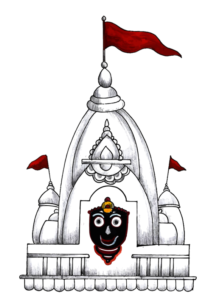
Unveiling the Mysteries of Shiva’s Abode
Sabli Mandir
Sabli Village, It is a Thikana of Mr. Jaipal Singh Sabli in Dungarpur
Introduction :
Nestled in the picturesque landscape of Dungarpur district, Rajasthan, India, lies the tranquil village of Sabli, a place of reverence and divine connection. Sabli is not just any ordinary village; it is home to a sacred haven that resonates with the echoes of devotion and faith – the Shiva temple. In the heart of this quaint village, the Shiva temple, known for its revered Shivling, stands as a testament to the rich cultural heritage and deep-rooted spirituality of the region.
The Essence of Sabli – A Thikana of Dungarpur :
Sabli is much more than a geographical location; it is a Thikana of Mr. Jaipal Singh Sabli in Dungarpur. The term Thikana is historically significant and refers to a feudal estate. This association with the region’s history adds an extra layer of cultural depth to the village. The Thikana of Sabli carries with it a legacy that has been preserved through generations.
Shivling of Sabli – A Divine Discovery :
The essence of Sabli converges at its revered Shiva temple. According to Indian mythology, Lord Shiva is often venerated through a sacred symbol known as the Shivling. Sabli’s sanctity is exemplified by a Shiva temple that holds a fascinating legend. The temple’s history is intertwined with the story of a humble farmer and his miraculous discovery.
As the myth goes, what is now the sacred precinct of the Shiva temple was once a mere farmland. In an act of divine grace, a Shivling was unearthed from the depths of the earth by the diligent farmer during a routine harvest. This serendipitous discovery shifted the destiny of the land and transformed it into a sacred site. The Shivling found in Sabli is not just an artifact but a symbol of divinity, faith, and the enduring connection between the mortal and the divine.
Monday Devotion – An Ode to Lord Shiva :
Every Monday, Sabli comes alive with the footsteps of devotees who converge at the Shiva temple to offer their prayers and reverence. Monday, according to Indian mythology, is the sacred day of Lord Shiva, making it a fitting day for devotees to connect with the divine. As the faithful gather to seek blessings, they believe in the gradual ascent of the Shivling. Each year, the Shivling is said to rise slightly, a phenomenon that deepens the spiritual significance of the temple.
Wishes Fulfilled – Faith in Shiva’s Grace :
For the people of Sabli, the Shiva temple is not merely a place of worship but a sanctuary where they confide their deepest wishes. The connection they share with the divine is deeply personal and profound. It is a place where wishes, offered with pure hearts and unwavering devotion, are believed to be answered by Lord Shiva himself. The sanctity and spiritual aura of Sabli have bestowed upon its people the conviction that the Shiva temple has the power to manifest their dreams and desires.
Conclusion :
Sabli, the Thikana of Mr. Jaipal Singh Sabli, in the Dungarpur district, Rajasthan, unfolds the timeless story of faith, devotion, and divine miracles. At the heart of this idyllic village stands the Shiva temple, graced by the divine Shivling, a symbol of Lord Shiva’s presence and blessings. The legend of the Shivling’s discovery by a farmer during a harvest encapsulates the mystical bond between the mortal and the divine.
The devotion of Sabli’s people is personified through their visits to the temple every Monday, a practice that reaffirms their profound connection with Lord Shiva. As the Shivling’s annual ascent continues to astonish devotees, the temple holds within its stone walls the collective faith of the village.
Sabli is more than just a village; it is a sacred haven, a divine abode, where wishes are whispered to the winds and hopes are entrusted to the Shivling. In this serene corner of Dungarpur, Sabli Temple stands as a testament to the unwavering faith of its people, the profundity of spirituality, and the miracles that continue to unfold in the name of Lord Shiva.
Editor – Kaalchakra Team
[ Note – Before Concluding anything as a Finale, Please Go through Original Scriptures of Vaidik Literature Written in Sanskrit and Also with Meaning of That time of Language. Because English is a Limited language to Explaining the Deeper Knowledge of Vaidik Kaal. ]
